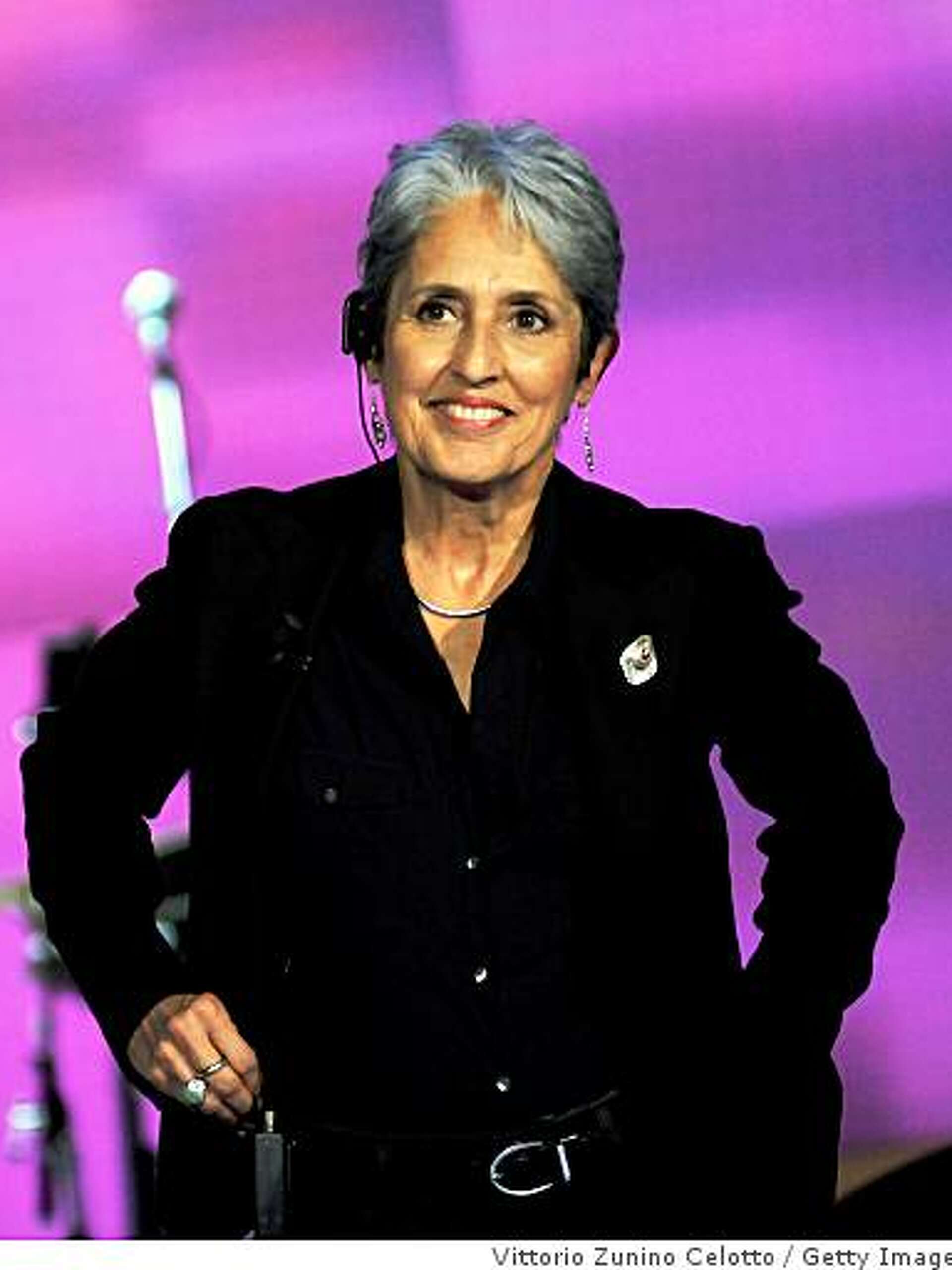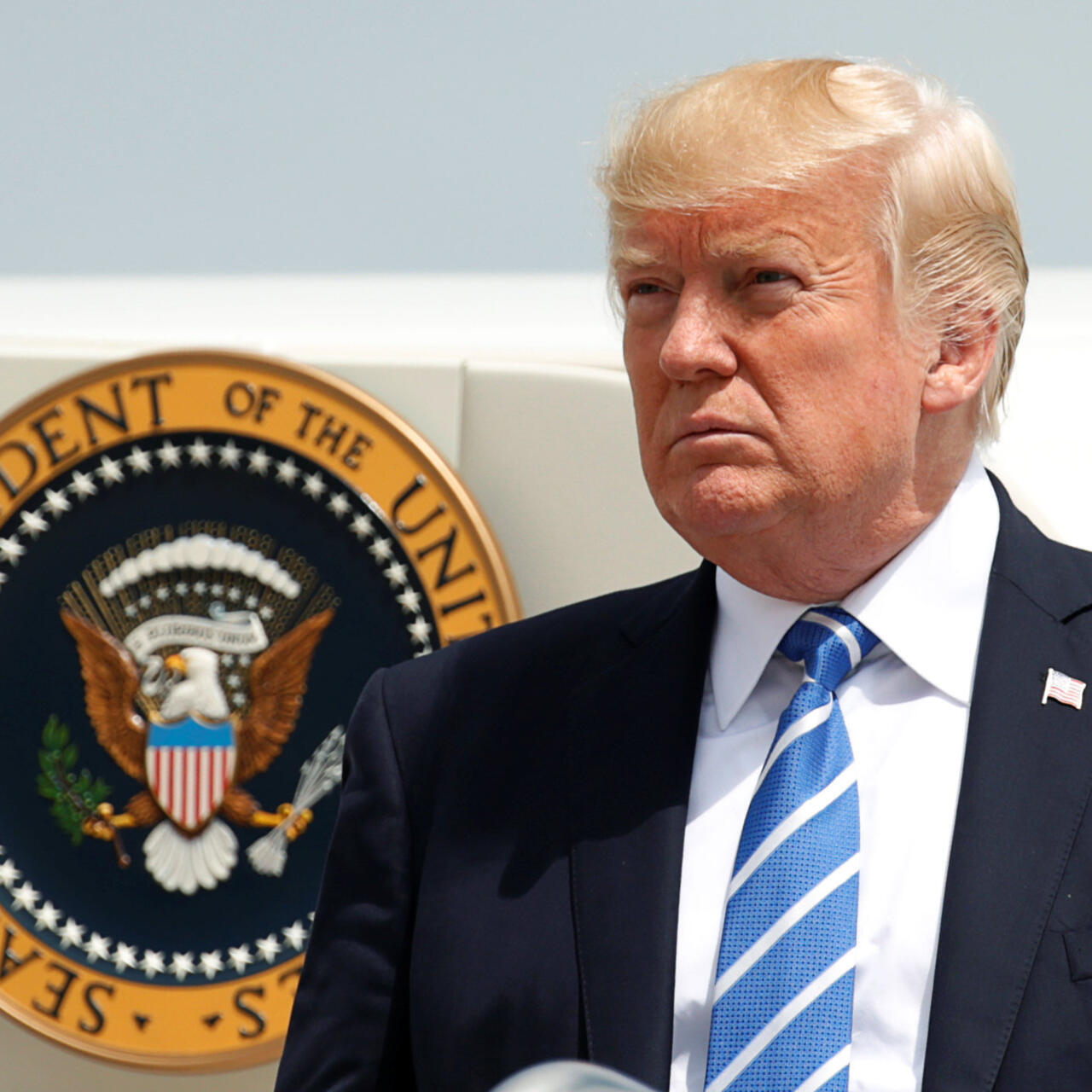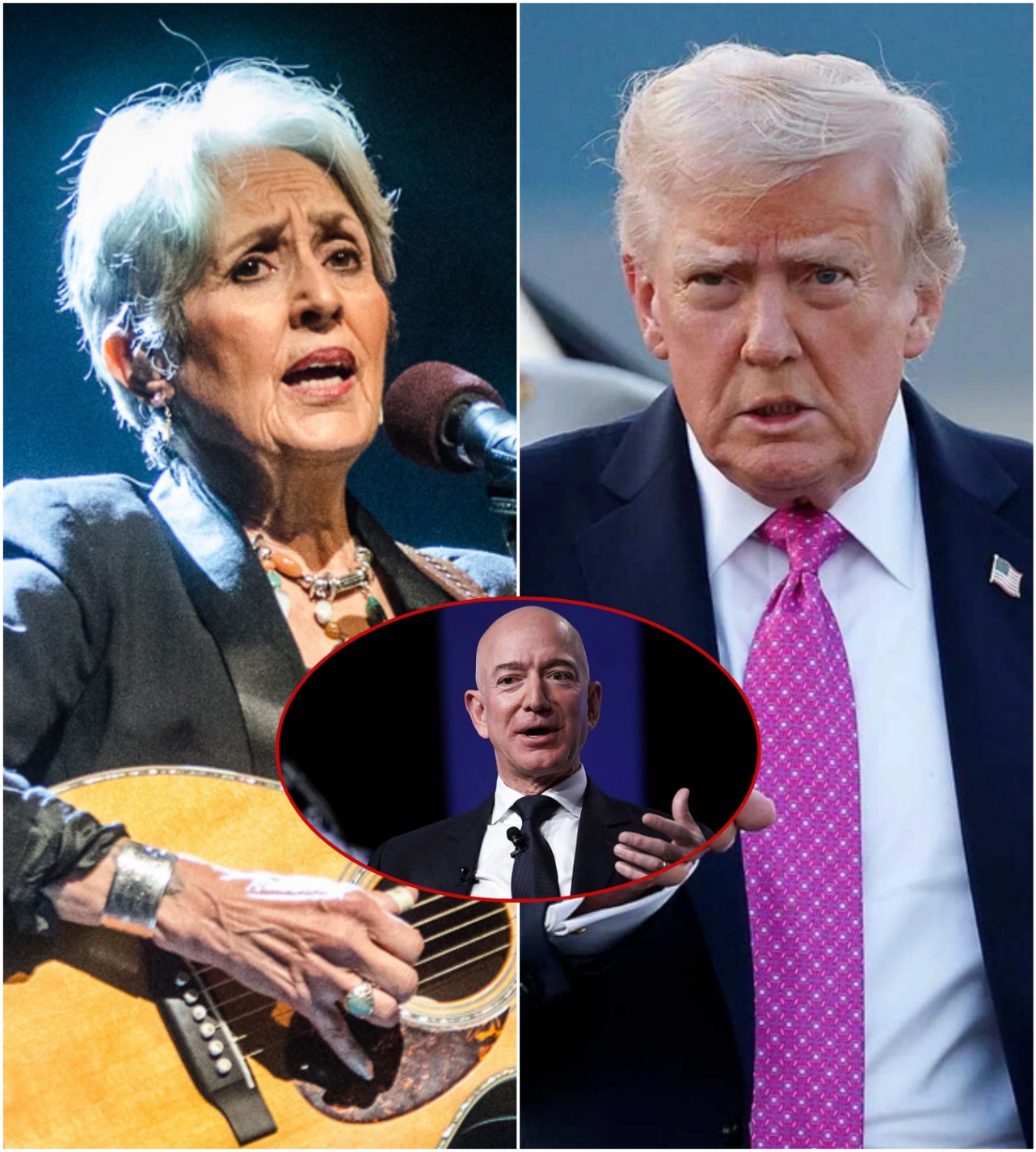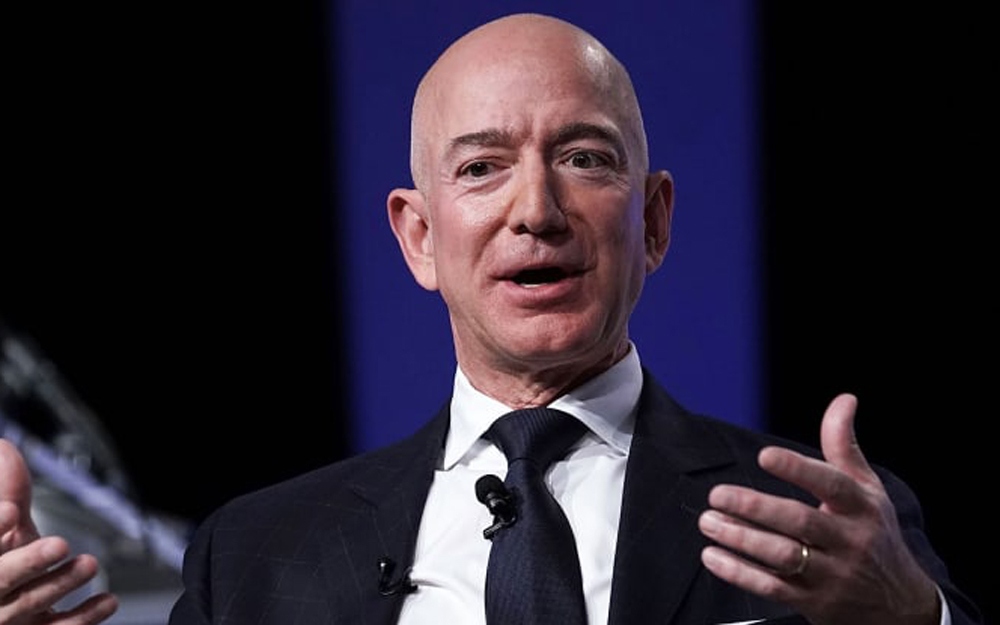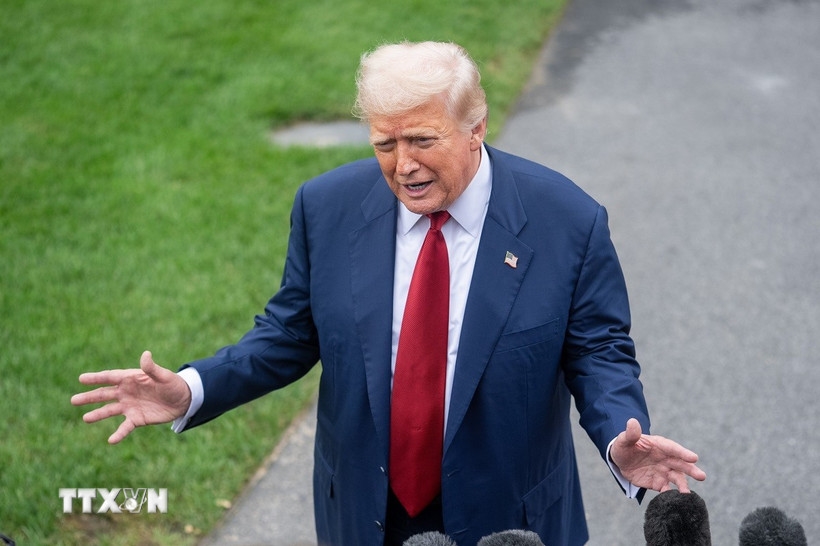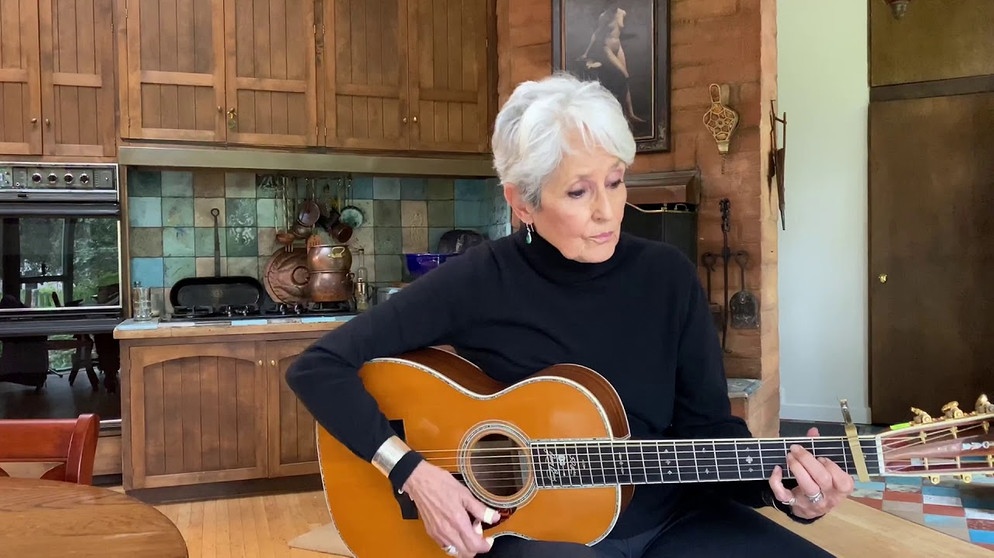“Wake Up, Jeff.” Joan Baez Stuns Jeff Bezos and Donald Trump with a Courageous Stand That Shook the Internet
When Joan Baez speaks, the world listens — not because of volume, but because of truth. And this week, the legendary folk icon reminded everyone that her voice, as timeless as her message, still carries the weight to rattle power itself.
It began with three simple words: “Wake up, Jeff.”
In a fiery yet heartfelt statement posted on her official website, Joan Baez announced that she would pull all of her music and collaborations from Amazon, condemning what she described as Jeff Bezos’ quiet alignment with Donald Trump. Her decision, both personal and political, sent shockwaves across the entertainment industry and beyond.
“You support Trump, you support hate,” Baez wrote. “I cannot be a part of that.” Her words landed with the force of history behind them — the same voice that once sang against war and injustice now calling out corporate complicity in 2025.
A Line in the Sand
Baez’s announcement came just hours after reports surfaced that Amazon’s leadership had entered what insiders described as a “mutually beneficial partnership” with Trump-aligned media outlets. While Bezos himself has not commented publicly, Baez’s post implied that silence was not neutrality — it was endorsement.
“Silence in the face of hate,” she wrote, “is still a form of speech.”
The reaction was immediate. Amazon executives reportedly scrambled behind the scenes, fielding calls from artists, unions, and advocacy groups demanding clarification. Meanwhile, Baez’s music — spanning over six decades of folk classics — began vanishing from Amazon’s digital shelves.
To many fans, it felt like déjà vu: the same Joan Baez who once stood shoulder to shoulder with Martin Luther King Jr. and marched for civil rights was once again taking a stand — this time against billion-dollar influence and quiet moral compromise.
Trump’s Retaliation and Baez’s Defiant Response
It didn’t take long for Donald Trump to notice. Within hours, he fired back on Truth Social, mocking Baez as “another washed-up protest singer chasing relevance.” The post went viral instantly — but what came next stopped the mockery cold.
Baez responded not with fury, not with insult, but with eight quiet words that would echo across every social platform:
“Truth doesn’t age, and neither does courage.”
Those eight words ignited a digital firestorm. Within minutes, hashtags like #TruthDoesntAge, #BaezSpeaks, and #StandWithJoan began trending worldwide. Musicians, actors, and activists rallied behind her, praising her courage in an age where most artists stay silent to protect their platforms.
Singer Brandi Carlile reposted Baez’s quote with the caption: “That’s what leadership looks like.” Actor Mark Ruffalo called her “the conscience of America — still.”
A Movement Rekindled
For many, Baez’s act wasn’t just about music or politics — it was about integrity. Her refusal to compromise reminded a weary public that speaking truth to power is not a relic of the past; it’s a moral necessity.
Clips of her performances from the 1960s resurfaced online — “We Shall Overcome,” “The Night They Drove Old Dixie Down,” and her haunting renditions of Dylan’s protest songs — circulating alongside her new words, as if the decades between them had never passed.
“She hasn’t changed,” one fan wrote on X. “The world just keeps testing her resolve.”
Baez’s younger admirers, many of whom discovered her through documentaries and social media, described her as “the original voice of resistance” — a figure who bridges generations by proving that conviction never goes out of style.
Industry Shockwaves
Inside the music industry, Baez’s decision created both admiration and anxiety. Pulling her catalog from one of the largest digital retailers on Earth is no small act — especially for an artist whose songs still draw millions of streams each month. But for Baez, the financial cost was irrelevant. What mattered was principle.
“If art is meant to illuminate truth,” she said in a later interview, “then I can’t let mine live in the dark.”
Executives at competing platforms reportedly reached out to offer support, with one source telling Rolling Stone that several artists were considering following her lead “if Amazon doesn’t clarify its position.”
Echoes of Her Legacy
This isn’t the first time Joan Baez has taken such a stand — and it’s unlikely to be the last. For more than sixty years, she’s used her platform not to court fame but to challenge it. From the civil rights marches of the 1960s to her outspoken opposition to wars and political corruption, Baez has never been afraid to risk her career for what she believes in.
Even at 84 years old, her voice remains steady, her moral compass unshaken. As historian Dr. Alana Greene noted, “Joan Baez has always understood that silence is complicity. Her courage is not nostalgia — it’s endurance.”
The Power of Quiet Resistance
Perhaps what makes this moment so powerful isn’t the clash between Baez and Trump, or Baez and Bezos — but the tone she chose. She didn’t shout. She didn’t rage. She simply spoke truth — and let it stand on its own.
In a world addicted to noise, her calm defiance cut deeper than any insult could. The same grace that once filled stadiums and protest lines now fills digital feeds, reminding millions that authenticity still matters, and integrity still inspires.
“Truth Doesn’t Age” — The Message That Endures
As the dust settles, one thing is clear: Joan Baez’s stand was never about politics — it was about conscience. About knowing when to speak, when to act, and when silence itself becomes a form of surrender.
Her words — “Truth doesn’t age, and neither does courage” — are already being quoted in classrooms, news articles, and murals across cities. For some, it’s a reminder of what courage once looked like. For others, it’s a spark — a call to wake up, to speak up, and to stand firm even when it’s uncomfortable.
For Joan Baez, it’s simply another verse in the lifelong song she’s been singing — one of truth, resistance, and unwavering love for humanity.
“Wake up, Jeff.” With that one sentence, Joan Baez shattered the delicate glass between silence and accountability.
The folk legend, now eighty-four, announced that she would pull all of her music and collaborations from Amazon, accusing Jeff Bezos of quietly aligning himself with former President Donald Trump. Her words carried the same moral gravity that had once echoed across civil rights marches and antiwar rallies.
“You support Trump, you support hate. I cannot be a part of that,” she wrote in a heartfelt post on her website.
The message wasn’t just directed at Bezos — it was aimed at anyone who had traded integrity for influence. For a brief moment, the internet went still. Then, as if a dam had burst, the reaction came in waves. Fans flooded comment sections with tears and applause. Artists who had once remained silent began speaking up. The phrase “Wake up, Jeff” trended worldwide, not as a callout — but as a rallying cry.
Bezos, sources say, was blindsided. The man who had built an empire on data and dominance was suddenly confronted by something he couldn’t quantify — conviction. When reporters pressed him for a response, he reportedly offered none. Silence, it seemed, was the only safe response to a moral hurricane.
Then came the counterattack. Donald Trump, never one to ignore an opportunity for chaos, mocked Baez on Truth Social. “Another washed-up protest singer chasing relevance,” he wrote. But his insult fell flat.
Hours later, Baez responded not with rage but with grace. Eight words — soft, sharp, and immortal: “Truth doesn’t age, and neither does courage.”
Those words swept across the internet like a prayer. Screens glowed with her quote; artists, activists, and journalists reposted it as if it were scripture.
For some, it was nostalgia — the memory of a fearless young woman who once stood beside Martin Luther King Jr., singing for justice in the face of violence. For others, it was revelation — proof that integrity could still pierce through the fog of power.
In a time when many voices tremble under the weight of politics, Baez’s act was a symphony of defiance. She didn’t scream. She didn’t plead. She simply stood her ground with the quiet, unshakable strength of someone who has nothing left to fear.
Her gesture rippled far beyond the music industry. Inside Amazon, insiders whispered of unrest. Some employees reportedly questioned company values, while others expressed admiration for Baez’s bravery. Outside, fans organized online movements urging artists to reconsider their partnerships with corporate giants tied to political manipulation.
Joan Baez had done what few dared: she reminded the world that moral courage doesn’t retire.
Journalists described her stance as “a masterclass in integrity.” Newspapers called it “the storm Bezos didn’t see coming.” Even some conservatives, despite their disagreement, admitted a grudging respect for her clarity of purpose.
When asked days later why she spoke up, Baez simply said, “Because silence helps the powerful. And I have never sung for silence.”
Her words lit something in the public — a spark of responsibility. Suddenly, conversations about ethics, profit, and conscience filled timelines. People began to ask: What does it mean to stand for something when standing costs everything?
Joan Baez didn’t set out to destroy anyone. She simply refused to belong to a world that rewards silence over truth. Her rebellion wasn’t about hate or revenge; it was about dignity — the stubborn belief that even one voice can still shake the world awake.
As the days passed, the noise began to fade. Bezos issued a lukewarm statement about “respecting artistic freedom.” Trump, predictably, moved on to another target. But Baez’s words lingered — like the echo of a song that refuses to end.
Somewhere, perhaps in her quiet California home, Joan Baez strummed her guitar beneath a fading sun, whispering to herself the same truth that once silenced the powerful: “Truth doesn’t age, and neither does courage.” And in that whisper — the world, for a moment, remembered what it means to be awake.

